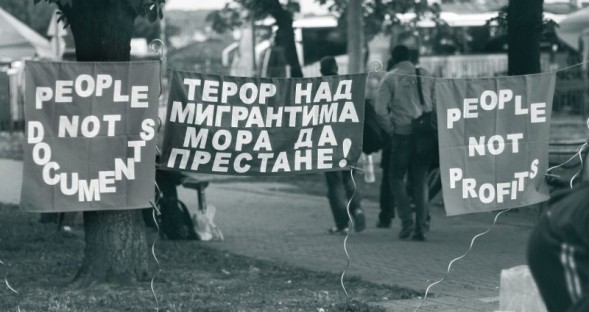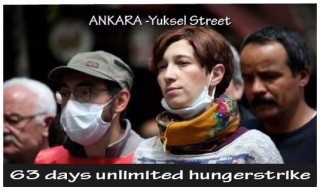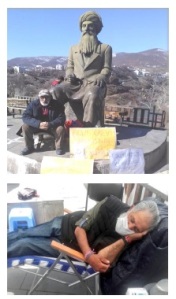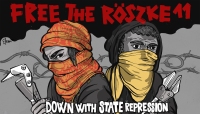prevod na naški u nastavku
2nd of August , 2017 Belgrade
The situation here in Serbia is very difficult for us. I would say this could be the worst time for us since we left our homeland. Let me write just about one story, from this you can imagine what we are facing on this journey.
We were a group of about 23 guys, when we reached near the border we saw there is a lot of control in the area. That night it was a heavy rain. After waiting for the whole nigh we did not manage to cross. Early in the morning we were told to go back to Subotica where we supposed to decide in which route we are going to try again. We asked the smugglers to cover the bus tickets or pay the taxi but they told us that this time there are no buses and taxis, so you have to walk. After walking for about 5 hours we arrived back to Subotica.
The next day, after 6 hours walking they took us to a specific place near the border and told us to sit in the jungle. After half hour waiting we moved more near, there, we saw two high fences. They told us that they will cut the first fence and we have to climb on the second one and then to run. Some of the guys told them that it is very difficult to climb on that fence (it was about 4meters high), but they just told us when we cut the first fence and anyone of you didn’t try to climb and comes back, we will cut those with knives.
They cut the first fence, and told us to climb and then to run. When they cut the fence all the guys started to run and climb on the second one, although some of us could not do that, it was very difficult, but at least we had to try. When we tried to climb on the second fence, as we touched it, we felt electric shocks. They kept telling us to climb and hurry up, some of the guys when they felt the electric shocks , they wanted to go back, but the smugglers kept shouting on them. At last hardly we manage to climb over the fence and started running towards the jungle. After 5 minutes a lot of police cars came to the point where the fence was cut. They started to search for us in the jungle. We continued to run without stopping to escape from them. After 20 minutes continuous running we hide in a place in the forest. We saw the hungarian police/border hunters with lights searching for us. When those on the ground did not find us they called for a helicopter. We were hiding and the helicopter was flying over us. After 30 min they found us, they started running towards us and they start to beat us, kick us and abuse everyone. They were shouting on us with their machine guns to terrorize us, and they beat us a lot. They wear ocher shirts and camouflage pants with machine guns in their hands. They took us to a specific place where their colleagues were, I guess it was another unit ( they wear different uniforms). We were told to sit in one line. Then, they called another team ( blue uniforms with dogs), they set the dogs on us and beat us more. When someone was crying, being scared from the dogs, they were laughing on him. They asked us whom of us can speak english, romanian, serbian, hungarian… because of the fear that they will ask more and more questions nobody wanted to speak in english. They told us that if non of us wants to speak, they will beat us again. Then I realized that they are going to beat us all, so I stood out from the group and told them that I can speak a bit of English.
“Come on we were looking for you!” – like in the movies.
They separated me from the group and took me behind the cars, they wanted me to tell them where are the other guys. I told them I don’t know where they are. They kept telling me that I know where the others are. I said I don’t know, when we crossed the fence we all run in different directions, how can I know where the others are. They kept shouting on me:
“We saw in the camera that 17 guys crossed the border, where are the other 7?”
They thought I was the leader of the group, because they found the power bank in my bag. For them it was a proof of being a “leader”.
When they realized that I am not going to tell them about the other guys, as I had no idea where they are, they started to beat me. They were 4 ( two in military uniforms and two in police uniforms), they beat me a lot, then they took me back to the group and they told me to lay down on the ground with extended arms above my head, like the others. We were told to not look at them. They started to beat us again, using sticks and kicking us. They were making fun of us, laughing on us. After that one of them started to walk on us, they were enjoying, laughing, and abusing us . Once again one of them, I think he was the senior officer came to me and beat my head with his stick and kept shouting to tell them about the others from the group. They also told me to tell them how we crossed and who brought us here.
We were laying on the ground like that for more than two hours. They turned their lights on my eyes and demanded to tell them about the smugglers and the route. They were making fun of me.
“ Will you come back to hungary again? If you try to come, we will be here, waiting for you, because we love to fight with you…”
After more than two hours they told us to stand in one line, they brought the police van, one by one they took us into the van, they were kicking and abusing us. When we asked about our bags and stuff they shouted: “ Get into the van as we said.” We never got back our stuff. My diary was inside my bag. It is the 3rd diary I have lost.
In the van one of them told me that when we arrive, there will be more of them waiting to beat us, so we don’t come again. We arrived near the fence, there was a lot of police cars, they took us out one by one, and took a picture of us, they were still laughing. We had to stand in one line, then they gave us a paper written in pashto that we will be punished if we try to enter hungary again.
They brought us back to serbia. Now I started to write my 4th diary.
At the end I would say that the way how they were treating and acting towards us was totally based on racism, as I was realizing at that time that it is clearly a war against people without papers.
02.08.2017. Beograd
Iz izgubljenih dnevnika
Situacija ovde u Srbiji je veoma teška. Rekao bih da su ovo možda najteži dani od kada smo napustili svoj dom. Dozvolite mi da napišem samo jednu priču, možda će vam olakšati da razumete kroz šta prolazimo na ovom putu.
U grupi nas je bilo oko 23, kada smo stigli blizu granice videli smo da ima mnogo kontrole na tom područlju. Te noći je padala jaka kiša. Čekali smo celu noć, ali nismo uspeli da pređemo. Rano ujutro rečeno nam je da se vraćamo za Suboticu, i da ćemo posle videti gde i kako da pokušamo ponovo. Tražili smo od krijumčara da nam daju novac za autobus ili taxi ali su nam rekli da u ovo vreme ne ide ništa i da moramo da hodamo. Nakon 5 sati pešačenja stigli smo nazad u Suboticu.
Sledeći dan, posle 6 sati hodanja, odveli su nas na određeno mesto blizu granice i rekli su nam da čekamo u šumi. Posle od prilike pola sata prišli smo još bliže granici, videli smo dve visoke ograde. Vodiči su nam rekli da će preseći prvu ogradu, a mi moramo da se popnemo preko druge, da je preskočimo zatim da trčimo iz sve snage. Neki od nas su se bunili da je to preteško, druga ograda je oko 4 metara visine. Rekli su nam da ako se neko od nas vrati nazad bez da je pokušao da se popne isećiće ga noževima.
Presekli su prvu ogradu, svi smo pojurili i krenuli da se penjemo na drugu. Delovalo je nemoguće ali nije nam bilo druge sem da pokušamo. Kada smo dotakli drugu ogradu, osetili smo peckanje struje. Neki od nas su hteli da odustanu, ali krijumčari su se derali na nas da požurimo.
Na kraju smo nekako uspeli uprkos struje i visine da preskočimo i krenuli smo da trčimo prema šumi. Nakon samo 5 minuta puno policijskih kola je stiglo na mesto gde je ograda bila presečena. Krenuli su da nas traže po šumi. Mi smo i dalje trčali bez prestanka da bi im utekli. Posle 20minuta neprekidnog šprinta sakrili smo se u šumi. Videli smo svetla, mađarski panduri- granični lovci su bili u potrazi za nama.
Kako oni na kopnu nisu uspeli da nam uđu u trag, pozvali su pomoć helikoptera. Helicopter je nadletao nad nama. Nakon pola sata su nas pronašli, krenuli su da trče prema nama, da nas biju i šutiraju. Da bi nas još više terorisali, derali su se i psovali sa oružjem u rukuma dok su nas zlostavljali. Nosili su majice oker boje, kamuflažne pantalone i mitraljeze. Odneli su nas na mesto gde su bili njihove kolege, pretpostavljam da je to bila neka druga jedinica, imali su drugačije uniforme. Naređeno nam je da sednemo u red. Pozvali su drugu jedinicu ( sa plavim uniformama i psima), huškali su pse na nas i batinali. Kada je neko od straha zaplakao smejali su se. Pitali su ko od nas govori engleski, rumunski, srpski ili mađarski.. Bojali smo se da će nas ispitivati, zato niko nije hteo da progovori engleski. Rekli su nam da ako niko neće da priča šibanje će se nastaviti. Kada sam shvatio da će nas ponovo biti, iskoračio sam iz grupe i rekao da pomalo govorim engleski.
“Ajde, tebe smo tražili!” – ( kao u filmovima )
Odvojili su me od grupe i odveli iza auta. Tražili su od mene da im kažem gde su ostali momci. Rekao sam da ne znam. Oni su insistirali na tome da im kažem gde se oni nalaze. Rekao sam im kako bih mogao da znam gde su oni, kada smo prešli preko ograde, trčali smo na razne strane. Nastavili su da urlaju: “Na kameri smo videli da vas je bilo 17, gde su ostala sedmorica?”
Našli su bateriju (powerbank) za punjenje telefona u mom rancu. To im je bio dokaz da sam ja lider grupe. Kada su videli da im neću ništa reći, a zaista nisam znao gde su ostali, ponovo su počeli da me batinaju. Bilo ih je četvorica (dvojica u vojnim uniformama i dvojica u policijskim), mnogo su me izudarali. Onda su me odveli nazad kod ostalih i naredili da legnem na zemlju sa ispruženim rukama iznad glave. Naređeno nam je da ne smemo da ih gledamo. Onda opet šibanje sa palicama i šutiranje. Jedan od njih je hodao na našim leđima i udarao nas od gore. Smejali su se, bila je to zabava, razonoda za njih. Mislim da je to bio nadležni oficir, još jednom mi se približio i udario me u glavu sa palicom. Opet se derao i tražio je da mu kažem gde su ostali, kako smo prešli i ko nas je doveo ovde. Ležali smo u toj pozi više od dva sata. Uperili su mi svetla u oči i ispitivali me o krijumčarima i ruti. Ismevali su me.
“ Hoćeš li se ponovo vraćati u mađarsku? Ako probaš, mi ćemo biti tu, čekaćemo te, zato što volimo da se borimo sa vama…”
Napokon je stigla policijska marica, jedan po jedan su nas ubacili u vozilo, šutirajući nas. Tražili smo da nam vrate torbe sa našim stvarima. “Ulazite u vozilo kako vam je rečeno!” Nikad nismo dobili nazad naše stvari. Moj dnevnik je bio u rancu. Bio je to treći izgubljni dnevnik na ovom putu.
Dok smo se vozili jedan od lovaca nam je rekao da će nas na odredištu čekati još njihovih kolega – da bi nas naučili lekciji i da se nikad više ne vratimo u mađarsku. Stigli smo blizu ograde, izveli su nas jedan po jedan i fotografisali. Još su se uvek smejali. Morali smo stajati u liniji, onda su nam dali papir na kome je na pašto jeziku pisalo da ćemo biti kažnjeni ako ponovo pokušamo da uđemo u mađarsku.
Vratili su nas u srbiju. Počeo sam da pišem četvrti dnevnik. Na kraju bih samo rekao da način, na koji su nas tretirali i šta su nam radili bilo je apsolutno rasistički, tada sam u potpunosti svatio da oni vode rat protiv ljudi bez papira.
Prenosimo govor sa protesta 8og marta u solidarnosti sa Afrinom : Organizovanje odozdo, autonomija i samoodređenje nisu principi neke daleke utopije : to su emacipatorski pristupi koje želimo da uspostavimo u našem društvu. Kapitalizam i patrijarhat nam upropašćavaju živote, tako što stvaraju izolaciju i otuđenosti, takmičarske odnose i odnose moći– ovde u Srbiji i svuda.









